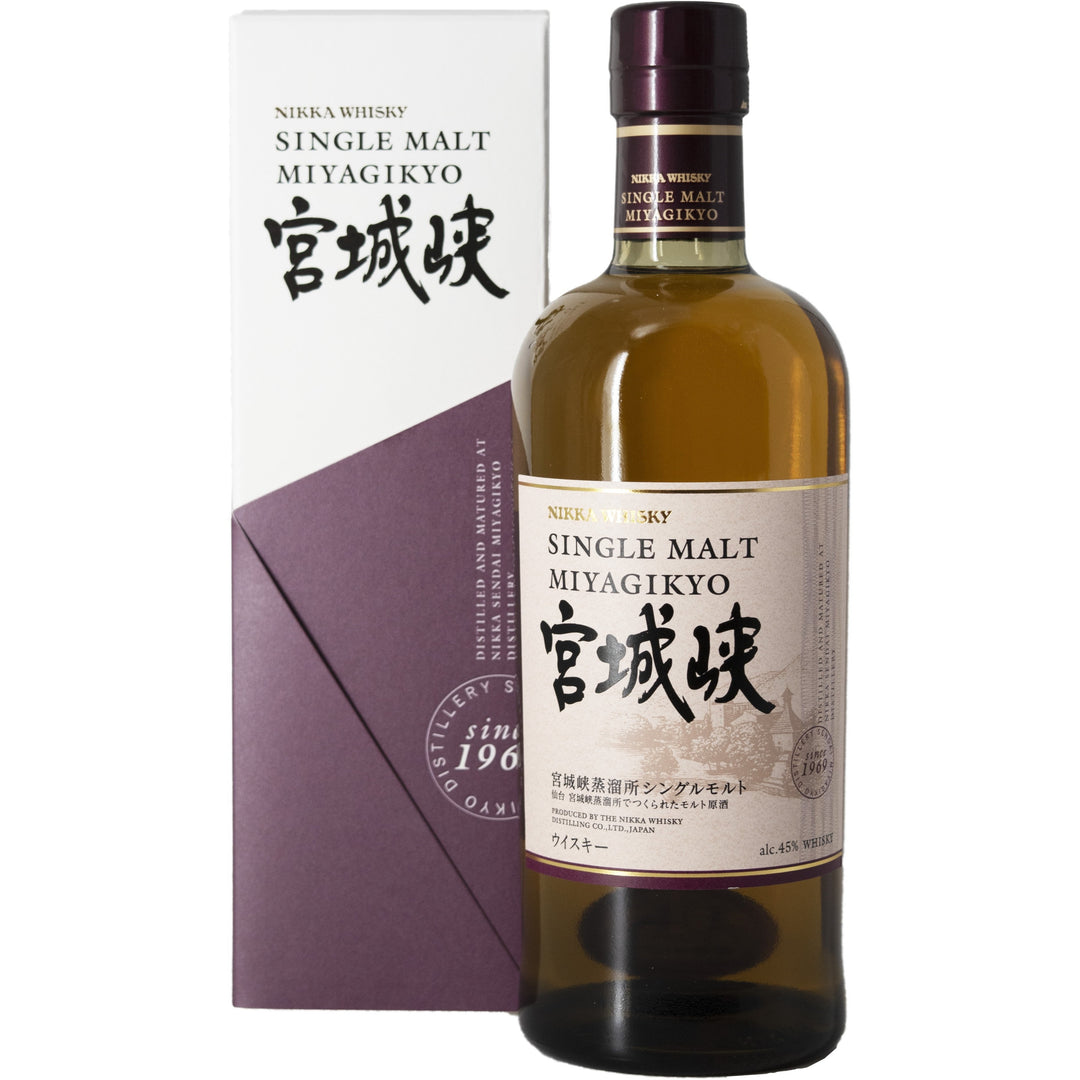
Nikka, Miyagikyo Single Malt Whisky
- In stock, ready to ship
- Backordered, shipping soon
AT A GLANCE
![]() Whisky
Whisky
![]() 45% ABV
45% ABV
![]() Japan, Tōhoku
Japan, Tōhoku
ABOUT THE WHISKY
In 1918, Masataka Taketsuru, the son of a sake-brewing family, was sent to Scotland to study Scottish whisky. He returned to Japan at the end of 1920, with his Scottish wife, Rita, and was employed by the Kotobukiya Group (later renamed Suntory) to build the Yamazaki Distillery, the first whisky distillery in Japan. At the end of his contract Masataka left to found his own distillery in 1934 on the northern island of Hokkaido in the coastal town of Yoichi, where the cold climate, sea breezes and local peat bogs mirrored conditions in Scotland. Initially called 'Dai Nippon Kaju' (The Great Japanese Juice Company), the company released its first whisky under the name Nikka in 1940, and the name was officially changed in 1952. Following the death of Rita in 1961, Masataka became increasingly focused on his work to improve the Nikka blends, importing Coffey column-stills from Scotland, which operated from a plant in Nishinomiya. In 1969 the Miyagikyo Distillery was completed in the rolling hills of northern Honshu; large, steam-heated stills and exceptionally pure water from the Nikkawa River give this distillery a bright, clean, fresh-fruit character. Masataka died in 1979, his legacy secure as the founding father of Japanese whisky.
TASTING NOTES
Attractive Sherry-influenced aromas, with floral, woody notes and the scent of ripe tropical fruit. The palate is soft and smooth, with continuing ripe apple, pear, peach and floral character. The finish is characterised by rising heat which lingers pleasantly, with a hint of wood-varnish and warm dough.
FOOD PAIRING
Best enjoyed neat; this is quite a delicate whisky. It would pair nicely with savoury biscuits and moderately flavoursome cheeses.
FRIARWOOD SAYS
Production for a Japanese malt whisky is effectively the same as for Scotch, with one significant difference: after mashing, a Scottish distillery will typically allow some of the solids from the malted barley to pass through to the washback, and sit with the fermenting wort. Japanese distilleries do not permit such untidiness, and their wort is typically clear, resulting in a 'cleaner' spirit with less malt-character.
WHERE TO BUY IN LONDON?
You can purchase Nikka Miyagikyo Single Malt Whisky here on our website or visit our two London shops in either Fulham or Wimbledon.
All orders over £150 receive free Express Delivery or can choose Next Day Delivery for just £3.95.
For orders under £150 delivery prices start from just £4.95, with Next Day Delivery for £9.95.
Free Click & Collect is also available from our Parsons Green shop, subject to stock availability.
Please note, orders must be placed by 2pm on a business day for Next Day Delivery. Orders placed after this cutoff will be processed the next business day.